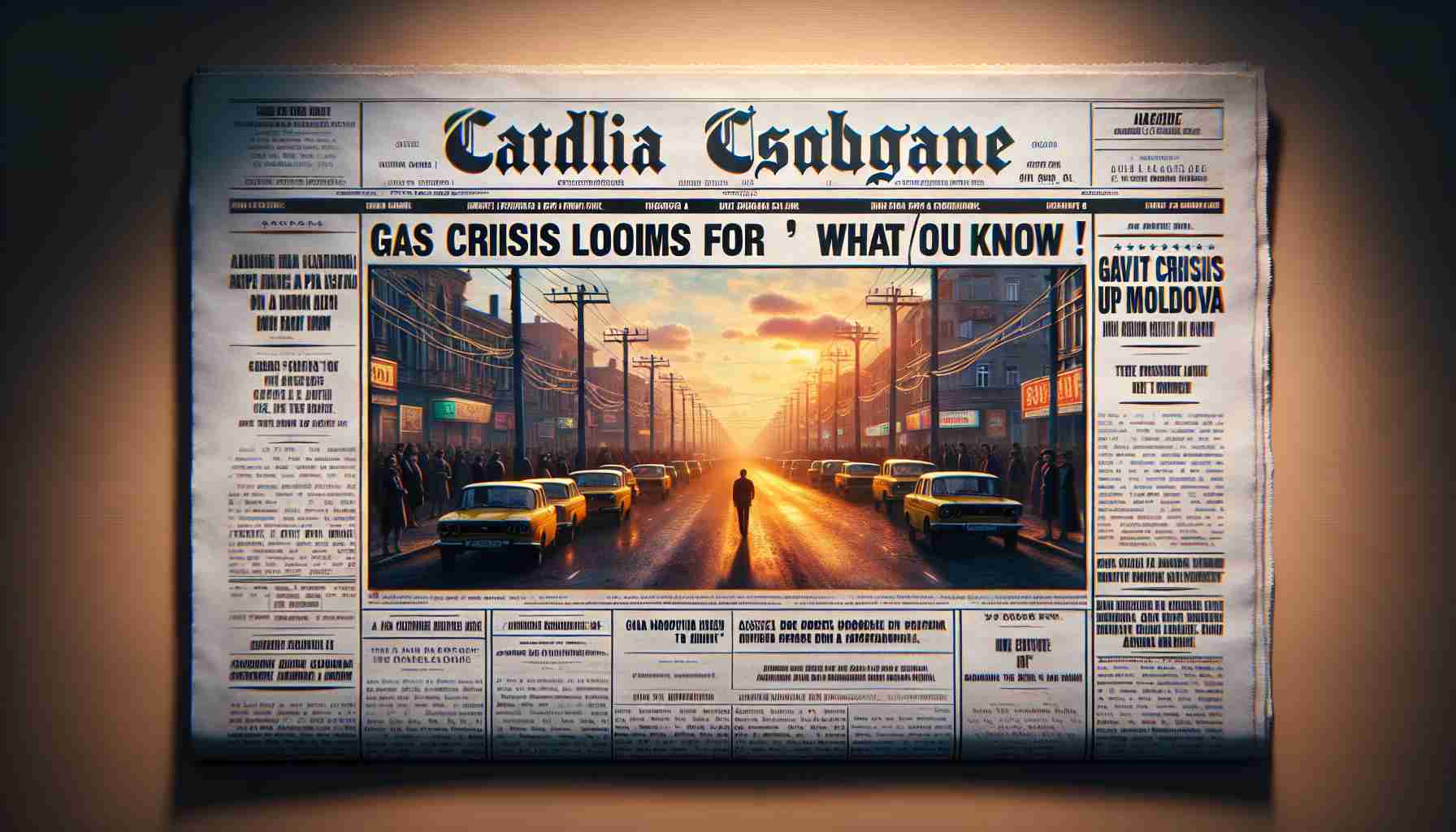Moldova is facing an imminent gas supply crisis. In a significant move, the Russian state gas company, Gazprom, announced that it will halt natural gas deliveries to Moldova starting January 1, 2025. This critical decision threatens to leave the nation in the dark, as the lack of fuel may lead to widespread power outages.
The cessation of gas supply could severely impact Moldova’s gas-fired power plants, which rely heavily on these resources for energy production. It is reported that Gazprom currently provides Moldova with around 2 billion cubic meters of natural gas yearly, which supports approximately 70-80% of the country’s electricity generation.
The reason for this abrupt halt, as explained by Gazprom, revolves around Moldova’s refusal to settle outstanding debts. In light of this alarming situation, the Moldovan parliament has declared a state of emergency in response to the potential fallout from the gas supply discontinuation.
As a former Soviet republic and a candidate for European Union membership alongside Ukraine, Moldova’s geopolitical landscape continues to shift. The nation is navigating complex external relationships, particularly as it approaches its presidential runoff elections in November, where pro-European incumbent Maia Sandu is actively seeking to strengthen ties with the EU. If the gas supply issues are not resolved, the consequences for both energy security and political stability could be profound.
Moldova’s Looming Gas Crisis: A Nation on the Brink of Darkness
Introduction: The Gas Supply Predicament
Moldova is on the verge of a gas supply crisis following the announcement by Gazprom that it will cease natural gas deliveries to the country starting January 1, 2025. This decision poses a significant threat not only to the energy security of Moldova but also to its political stability as it seeks closer ties with the European Union.
Impact on Moldova’s Energy Infrastructure
The impending lack of natural gas is particularly alarming given that Moldova’s gas-fired power plants are heavily dependent on Russian gas. Currently, Gazprom supplies approximately 2 billion cubic meters of natural gas annually, which accounts for 70-80% of Moldova’s electricity generation. The cessation of this supply could lead to extensive power outages across the nation, impacting everyday life and economic activities.
Features of Moldova’s Energy Landscape
– Power Source Dependency: The nation relies heavily on gas-fired plants for electricity, making it vulnerable to supply disruptions.
– Energy Mix: Despite some developments in renewable energy sources, natural gas remains the backbone of Moldova’s energy production.
Current State of Emergency
In reaction to the potential crisis, the Moldovan parliament has declared a state of emergency. This move is intended to facilitate immediate actions to find alternative energy sources and ensure that the needs of citizens and businesses are met.
Geopolitical Considerations
Moldova’s gas supply issues are compounded by its geopolitical situation. As a candidate for European Union membership and a former Soviet republic, Moldova is in a precarious position. The upcoming presidential runoff elections in November will further complicate matters, as political shifts could influence the country’s energy strategy and international alliances.
Use Cases and Strategic Responses
– Diversification of Energy Sources: Moldova may look towards alternative suppliers such as the EU or neighboring countries to secure energy supplies.
– Investment in Renewable Energy: Accelerating the transition to renewable energy sources could mitigate the impact of future disruptions.
Risks and Limitations
The complete reliance on Gazprom poses several risks:
– Debt Issues: The halt in gas supply is linked to Moldova’s outstanding debts to Gazprom, emphasizing the need for financial and operational reforms within the energy sector.
– Economic Vulnerability: Prolonged energy shortages could set back Moldova’s economy significantly, affecting industrial output and everyday consumer needs.
Future Predictions and Trends
Analysts predict that Moldova may face increasingly difficult negotiations with Russia in an attempt to resolve their energy crisis. The shift toward diversification and renewable energy sources could become more pronounced in the coming years. Moreover, successful collaboration with EU partners might pave the way for a more stable energy future.
Conclusion: The Way Forward
As Moldova braces for a turbulent energy landscape, the intersection of energy security, economic resilience, and political stability will be pivotal. The next steps taken by the Moldovan government in response to the gas supply crisis will likely have lasting repercussions on its path towards EU integration and energy independence.
For further updates on Moldova’s energy situation, visit the Moldovan Government’s official site.
